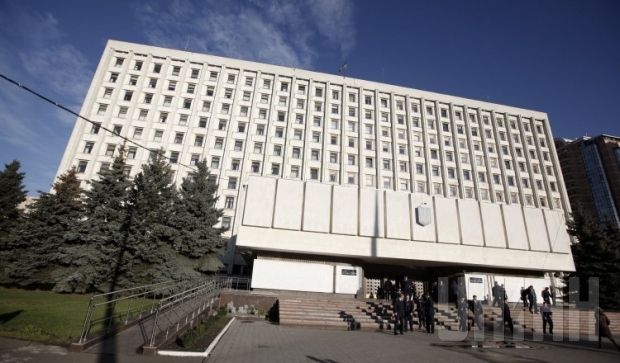
This week’s milestones: divide in Donbas, coalition puzzle and elections fluster
The “vegetable elections” that were held in the self-proclaimed Donetsk and Luhansk People’s Republics on November 2 have forced the Ukrainian authorities to go back on the “Donbas laws,” which took a huge amount of effort to put through parliament.
Although the official vote count is over, disputes over the vote count remain in some constituencies. This, however, is not preventing a coalition puzzle consisting of experienced MPs and ambitious newcomers from forming.
By staging pseudo elections in the Donbass areas that are not controlled by the Kyiv authorities through its DPR and LPR puppets, the Kremlin dealt a hard blow to Poroshenko’s peace agreements. The speedy inauguration of Zakharchenko and Plotnitskiy suggests that Moscow promised the leaders of the self-proclaimed republics more than simply “respect for the expression of popular will.” However, with an impending G-20 summit, Vladimir Putin chose not to flex his political muscle.
Once again, the Ukrainian authorities had to employ a special tactic in order to neutralize Russia’s strategy for turning Ukraine into a globally recognized failed state. At a National Security and Defense Council meeting, Poroshenko insisted that the “Donbas laws” be repelled with zeal on a par with that with which he put the laws through parliament in mid-September. Critics of the president should remember that after the defeat suffered at Ilovaisk Ukrainian troops were hardly in a position to respond properly to the aggression. It is tempting to believe that things have changed for the better because Russia continues to build up armored vehicles and militants in the Donbas – the build-up was registered even by traditionally-not-very-watchful OSCE observers.
Prime Minister ArseniyYatseniuk has made his contribution to the state’s position on the Donbas issue. He said that social payments in the regions that are not controlled by the Ukrainian government would be suspended, and that budgetary institutions should be transferred from the area before December 1. This initiative received public support, in contrast to the prime minister’s decision not to halt energy and heat suppliers to the occupied regions. This decision, however, makes perfect sense – under current conditions Ukraine should not give rise to accusations that it is causing a humanitarian crisis in the south-eastern Donbas.
I wonder what will the parliamentary coalition’s position regarding the resolution of the Donbas conflict will be. So far the parties have announced that they have reached agreement on defense and humanitarian policies. They also said that they would not start distributing portfolios before the coalition agreement is signed. Volodymyr Hroisman believes that the agreement will be approved and signed by December 1.
Apart from not very clear attempts to employ symbols to explain why it should take so much time to sign a coalition agreement, no other explanations have been given. It is not impossible that the three parties initiating a coalition – the Bloc of Petro Poroshenko, the Popular Front and the Samopomich are trying to avoid the whims of Liashko’s radicals and Tymoshenko’s “hearts” (the party has chosen the heart as its symbol). The disagreeable infighting between the founders of the Volia Party could be another reason why the MPs are trying to play it safe.
No sooner did the Central Election Commission finish counting the votes given for political parties that people started making various accusations against Commission Head Mykhailo Okhendovskiy. It appears that it is not only about Okhendovskiy’s position – people were quick to remember that he was last appointed as commission member on the initiative of the Party of Regions – but also about the new nature of the parliamentary elections compared to 2012.
This time, the bitter fight between the ruling authorities and the opposition has been replaced by the competition between financial and political groups, consisting of members of different political parties. One should also take into account the involvement of battalion commanders and public activists who are used to resolving issues as quickly as possible. The situation around vote counting once again proves the need for a new election law envisaging elections on the basis of open party lists and a replacement of Central Election Commission members.
Yevgeniy Mahda

